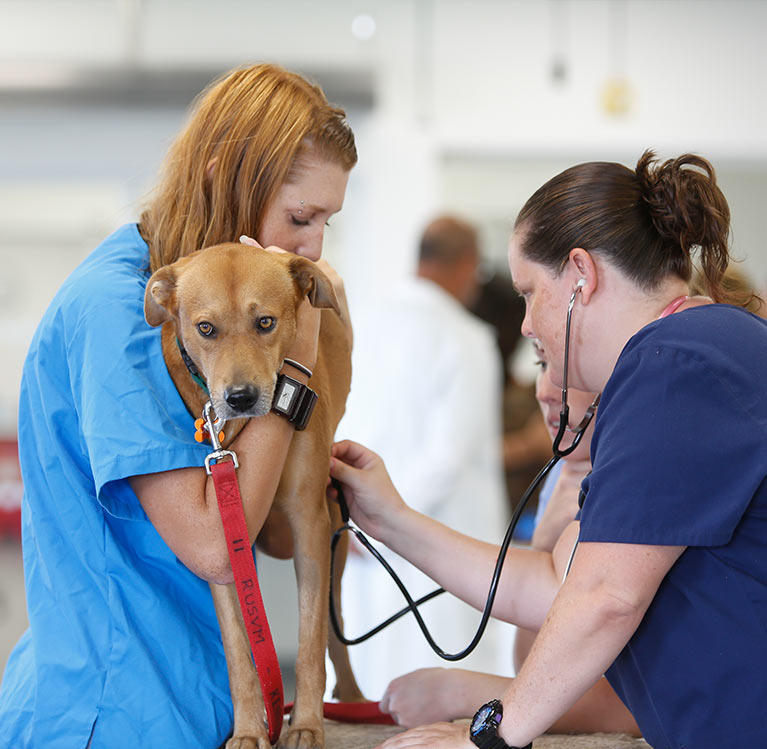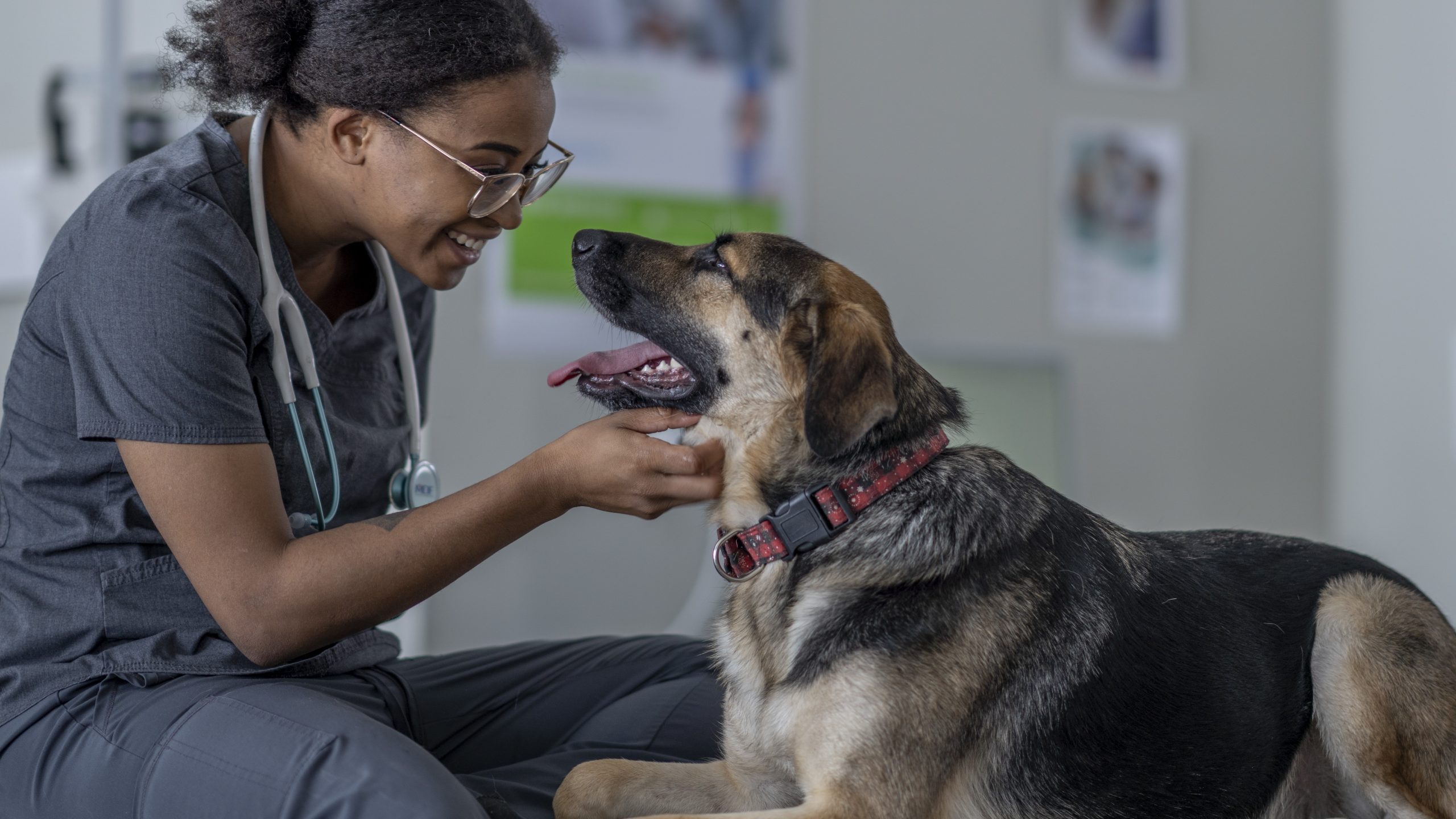What to Anticipate Throughout a Thorough Pet Health Checkup at Your Local Vet
What to Anticipate Throughout a Thorough Pet Health Checkup at Your Local Vet
Blog Article
Vaccination Guidelines From Your Trusted Vet
Vaccination guidelines supplied by your relied on vet play an essential duty in securing your pet's health and wellness and well-being. Core vaccinations are essential for all animals, while non-core vaccines can be customized to environmental direct exposures and particular way of livings. Comprehending the subtleties of vaccination timetables, which begin as early as six to 8 weeks, is necessary for optimal security. Additionally, resolving typical mistaken beliefs bordering vaccines can additionally improve pet owners' self-confidence in these safety nets. As we discover these crucial facets, it becomes significantly clear why normal assessments with your veterinarian are indispensable for notified decision-making.

Importance of Vaccinations
Inoculations play a critical duty in protecting pet dogs versus a series of preventable illness. By boosting the immune system to identify and battle particular pathogens, vaccines dramatically lower the occurrence of infectious illness that can impact a pet dog's health and longevity. Not only do inoculations protect private pets, but they likewise add to herd resistance, therefore decreasing the general frequency of diseases in the family pet populace.
Prompt inoculations aid to mitigate the spread of diseases such as rabies, parvovirus, and distemper, which can have severe consequences for both human beings and pet dogs. Inoculations are usually a need for boarding centers, grooming services, and canine parks, making them vital for those who wish to socialize their pets.

Core Injections for Animals
While the particular vaccination requirements of family pets can vary based on individual factors, core injections are generally advised to secure against one of the most typical and severe conditions (Veterinarian Enterprise). Core vaccinations are those considered vital for all family pets, no matter their lifestyle or geographical location, as they safeguard versus possibly fatal and extremely infectious illnesses
For pets, the core injections consist of those for canine distemper, parvovirus, adenovirus (hepatitis), and rabies. Canine distemper is a viral condition that impacts the respiratory, stomach, and nerve systems. Parvovirus is understood for triggering serious gastrointestinal health problem, particularly in pups. Adenovirus can result in liver disease, while rabies is a zoonotic disease that positions a danger to both family pets and humans.
In pet cats, core injections incorporate feline panleukopenia, feline calicivirus, feline herpesvirus (rhinotracheitis), and rabies. Feline panleukopenia is a very contagious viral disease that affects the body immune system and intestines. Calicivirus and herpesvirus are major factors to top respiratory infections in cats, while rabies remains a vital problem for public health.
Speak with your veterinarian to ensure your pet dogs get their core vaccinations on time.
Non-Core Vaccines Explained
Non-core injections are tailored to deal with certain dangers connected with a pet dog's way of life, setting, and exposure to certain illness. Unlike core vaccines, which are universally advised for all pet dogs, non-core vaccines are taken into consideration based on individual conditions. These injections are particularly essential for animals that might run into one-of-a-kind pathogens as a result my blog of their geographical location, travel routines, or tasks.
Examples of non-core vaccines consist of those for Bordetella bronchiseptica, which is linked to kennel coughing, and Lyme disease, triggered by ticks. Animals that frequently connect with various other pets, such as those in boarding facilities, pet parks, or brushing environments, might benefit from Bordetella vaccination. Similarly, if you reside in a location where Lyme illness prevails, immunizing against this condition can be a prudent option for outdoor-loving canines.
Other non-core vaccinations may include those for leptospirosis, canine influenza, and feline leukemia, relying on the specific danger elements existing. It is necessary to have a detailed conversation with your vet concerning your animal's way of living and the potential demand for these vaccinations, ensuring a tailored vaccination technique that ideal secures your hairy pal.
Inoculation Arrange Introduction

As animals develop, it is very important to stick to the recommended booster vaccinations. Veterinarian Enterprise. For adult animals, core vaccinations are usually offered every one to three years, relying on the specific vaccine and local laws. Non-core injections may be suggested based upon way of living factors and local disease occurrence, necessitating a tailored method
Normal vet exams are important for updating vaccination routines. Your vet can offer support on one of the most proper booster shots for your pet, considering age, health status, and ecological threats. By staying proactive and notified, family pet proprietors can ensure their fuzzy buddies receive reliable and timely vaccinations, thereby guarding their wellness and wellness throughout their lives.
Common Myths About Vaccinations
Misconceptions concerning pet inoculations can lead to complication and reluctance amongst pet proprietors regarding the immunization procedure. One widespread misconception is that injections are unneeded for interior pets. While it holds true that indoor pet dogs face reduced dangers, they are not completely immune to diseases, as microorganisms can be presented with various means, including human apparel and other animals.
An additional misunderstanding is that vaccines can create the illness they intend to stop. In truth, most vaccinations have suspended or undermined pathogens, which can not create condition in healthy animals. Some family pet proprietors additionally think that their family pets must not be immunized if they are already healthy and balanced; nevertheless, vaccinations are an aggressive procedure that helps protect against the start of illness.
Additionally, lots of animal owners fear that vaccinations will certainly cause long-lasting health and wellness difficulties. While side impacts can occur, they are typically mild and short-term. The advantages of vaccination-- protecting animals from potentially lethal diseases-- far exceed the dangers. Understanding these typical myths is important for responsible animal possession and making sure the health and wellness and safety of your hairy buddies. Constantly consult your vet for accurate information tailored to your pet dog's certain demands.
Verdict
In summary, adherence to inoculation standards is essential for making certain the health and wellness and durability of pets. Core injections provide crucial protection against severe conditions, while non-core vaccines resolve details risks based on individual way of livings. Establishing a comprehensive vaccination schedule, in combination with routine veterinary check-ups, facilitates optimal wellness management. Resolving typical misconceptions surrounding inoculations additionally enhances the importance of educated decision-making in animal care. Ultimately, a positive strategy to inoculations is essential for preserving pet health.
Not just do inoculations protect specific animals, yet they likewise contribute to herd immunity, thereby reducing the general like this occurrence of diseases in the pet dog populace.
Misunderstandings concerning pet dog inoculations can lead to confusion and unwillingness amongst pet proprietors concerning the immunization process. While it's true that indoor pet dogs encounter reduced dangers, they are not completely immune to conditions, as microorganisms can be presented with various means, including human apparel and other pets.
Some family pet owners likewise believe that their family pets ought to not be vaccinated if they are already healthy and balanced; nonetheless, vaccinations are a proactive measure that aids stop the onset of health problem.
The benefits of vaccination-- securing animals from possibly deadly illness-- much surpass the risks.
Report this page